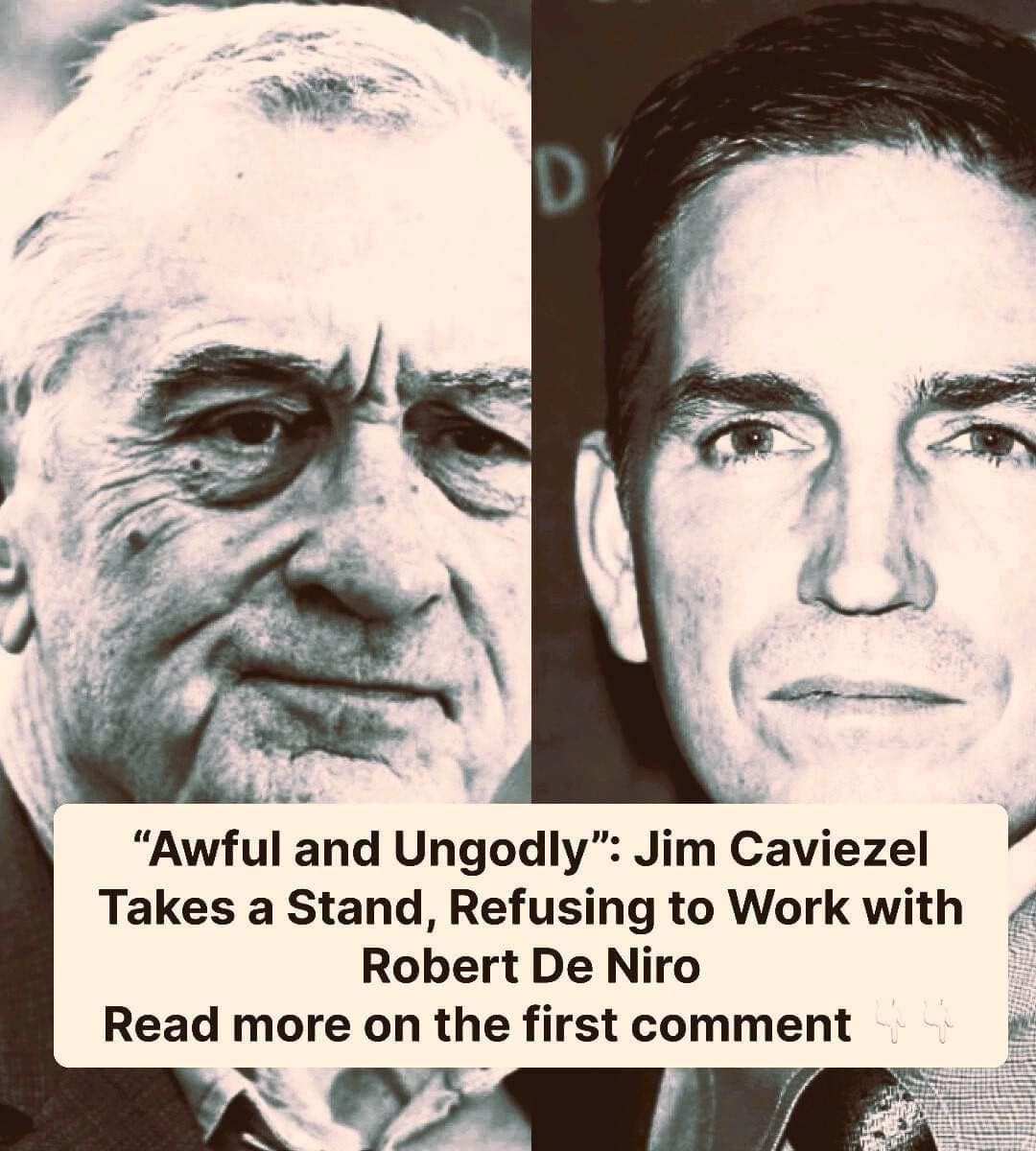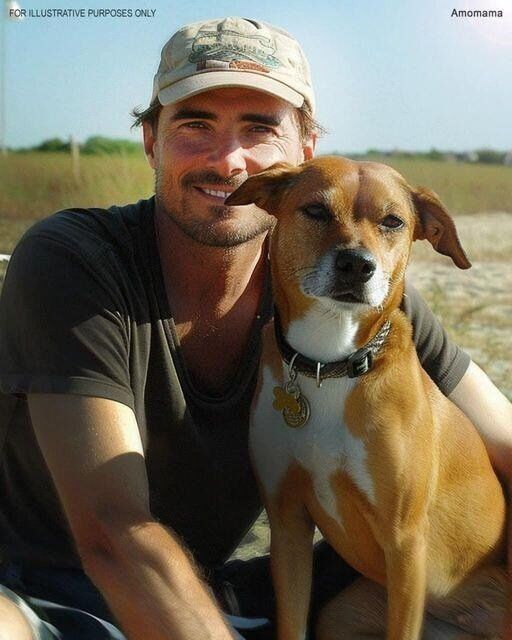Jim Caviezel Takes a Stand: Refuses to Work with Robert De Niro
Actor Jim Caviezel made news recently when he openly declared his unwillingness to collaborate with well-known actor Robert De Niro. Widely acclaimed for playing Jesus Christ in Mel Gibson’s “The Passion of the Christ,” Caviezel called De Niro a “awful, ungodly man.” Inside Hollywood, this audacious declaration has generated a heated discussion on the harmony of personal values and professional ties.
A devoted Christian well-known for his unflinching dedication to moral standards, Caviezel has been forthright about his religious views. These ingrained convictions are what led him to separate from Robert De Niro. Even if Caviezel did not go into great into regarding their disagreement, it is evident that his decision is the result of a disagreement in values. The actor feels there is a disconnect between De Niro’s public persona and his previous actions, hence he favors projects that fit with his own moral compass.
This episode begs more general concerns about how performers manage their personal convictions in the politically heated and cooperative Hollywood setting. Even if the business has always valued variety of opinion and expression, there are more and more cases of performers setting limits according to their own moral principles. Caviezel’s reluctance to collaborate with De Niro is a reflection of the shifting environment in which people feel obliged to stand up for what they believe in even at the risk of losing their jobs.
The entertainment business has seen firsthand how public pronouncements made by performers can help or hurt their careers. Even if Caviezel’s refusal to work with De Niro may win him over to those who share his values, it also begs questions about how this will affect his future partnerships and how industry professionals see him. Such public statements may be taken with prudence by some, and it’s yet unknown how this will affect Caviezel’s professional path.
The foundational Christian faith of Caviezel has defined his public identity. He shot to fame as an actor who was not hesitant to take on parts that aligned with his spiritual beliefs thanks to his performance as Jesus Christ in “The Passion of the Christ.” The argument with De Niro highlights the difficulties actors who want to stay morally clear in a complicated and morally dubious business face.
Apart from the particular performers, Caviezel’s reluctance to collaborate with De Niro makes one consider the larger ramifications for Hollywood and the entertainment business at large. This event emphasizes the continuous conflict between the collaborative character of filmmaking and individual convictions. As more performers use their platforms to communicate their beliefs, the industry might see a change in dynamics as people choose to speak out on matters that are important to them.
Jim Caviezel’s steadfast morally-based refusal to work with Robert De Niro has generated discussion on how personal beliefs and professional obligations interact in Hollywood. This event reminds us of the narrow line that separates the collaborative attitude that characterizes filmmaking from personal ethics. The argument between Caviezel and De Niro highlights the difficulties and complications experienced by performers who want to stick to their convictions as the entertainment business continues to negotiate these issues.



